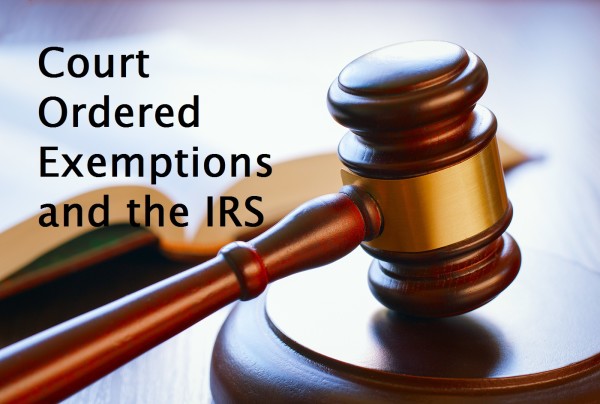
TIGTA's MISSION: Provide audit and investigative services that promote economy, efficiency and integrity in the administration of the internal revenue laws. Visit them at http://www.treasury.gov/tigta/index.shtml
Every so often, the good guys win. Every once in a blue moon, putting up a fight for what’s right pays off. We’ve been campaigning for a long time for the rights of parents whose children have been claimed illegally by other persons. The IRS has listened, and they’re going to do something about it.
Glory Hallelujah!
I’d like to tell you that the IRS is responding to the petition that Roberg Tax Solutions sponsored last spring. I’d like to tell you that but it isn’t true, we didn’t get enough signatures to even get the petition read.
But, the IRS is responding to an organization called TIGTA: Treasury Inspector General for Tax Administration. TIGTA’s got the muscle to make some changes.
TIGTA was auditing refundable tax credits and found that they were susceptible to fraud. For those of you who have been victimized by those fraudsters—you realize it doesn’t take Sherlock Holmes to figure that out. But TIGTA was able to come up with some hard numbers—as in of the $2.3 billion dollars that they found to be fraud, the IRS was only able to recover $1.3 billion dollars—that’s a billion dollars gone with the wind!
TIGTA’s recommendation is that the IRS implement additional controls to identify and stop erroneous claims for refundable credits before refunds are issued.
TIGTA requested an account indicator to identify taxpayers who claim erroneous refundable credits. Taxpayers with that indicator should be required to provide documentation before their claims for refundable credits are processed and should be considered for pre-refund examinations of claims for all refundable credits. (That’s basically what Roberg Tax Solutions asked for in our petition!)
The IRS management has agreed with TIGTA’s recommendations and they will take corrective actions. They will develop a pre-refund examination filter so that historical information is available and used as selection criteria. Now that’s not exactly what TIGTA recommended—but it’s a good start.
Is this a perfect win? No—but for victims of child identity theft, it’s definitely a step in the right direction. To read more about the TIGTA report, click here: http://www.treasury.gov/tigta/auditreports/2012reports/201240105_oa_highlights.pdf
_______________________________________________________________________
For some more information on this subject, be sure to check out:
Will I Go To Jail For EIC Fraud?
http://robergtaxsolutions.com/2011/04/will-i-go-to-jail-for-eic-fraud/
My Ex Claimed my Kid: Now What Do I Do?
http://robergtaxsolutions.com/2011/01/my-ex-claimed-my-kid-now-what-do-i-do/
Stolen Children
http://robergtaxsolutions.com/2012/05/stolen-children/

